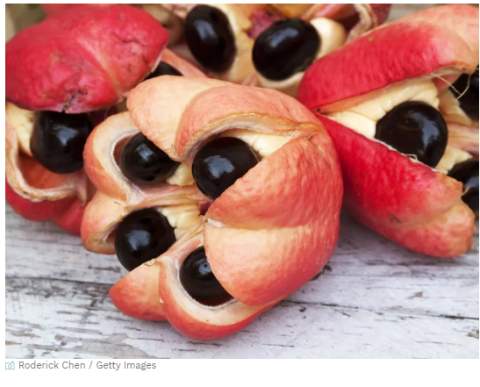

In a recently published paper, researchers from the Department of Chemistry, Faculty of Science and Technology, The University of the West Indies, Mona explored the potential usefulness of the ackee seed by the characterization of its extracts.
Blighia sapida, commonly known as the ackee, is a member of the Sapindaceae family. The tree is native to the forests of West Africa and was brought to the Caribbean and later Florida, where it is cultivated as an orchard crop in some areas. A significant foreign exchange earner for Jamaica, the arilli of the fruit are processed to make canned ackee in brine whereas the seeds, raphe and pods are discarded. The findings suggest that ackee seeds are a rich source of bioactive components. Through gas chromatography mass spectrometry the researchers were able to identify several analytes. Ackee seed oil is rich in gondoic acid which has anti-inflammatory properties. Fourier Transform Infrared Spectroscopy (FTIR) was utilized to detect several bands that are characteristic of the methylencyclopropane moiety present in hypoglycin B, a toxin present in ackee seeds. FTIR could potentially be utilized as a facile method of detecting hypoglycin.
Reference: Aimey Z, Mowatt K, Gupte S, Warren D, Goldson-Barnaby A, Sadler-McKnight N, Reid R. Characterization of Blighia sapida seed extracts. Anais da Academia Brasileira de Ciencias. 2023; 95(suppl 1):e20201459. DOI: 10.1590/0001-3765202320201459. PMID: 37585964.
Follow the Faculty of Science and Technology on Instagram @uwimona_fst and on Facebook at The Faculty of Science and echnology, The UWI Mona. For inquiries, WhatsApp us at 1-876-552-4691, call us at 1-876-927-1660-9, or email us at fst@uwimona.edu.jm.
Published on 27 Apr, 2024